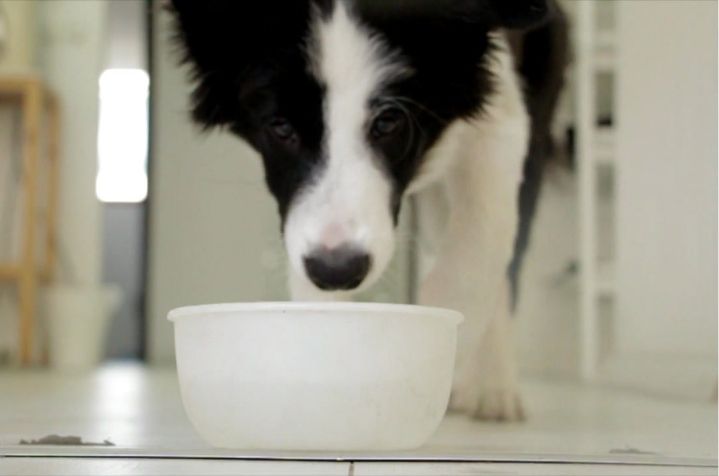Ah, the enigmatic world of our four-legged friends! Just when we think we’ve got them all figured out, they throw us a curveball. Picture this: It’s a sunny day, and your furry companion is bounding around the yard, tail wagging, chasing after toys, and seemingly on top of the world. But then, you notice something amiss. Amidst the joyous barks and playful antics, there’s an unexpected bout of diarrhea. It’s puzzling, right?
How can a dog, seemingly the epitome of happiness and energy, be dealing with such a concerning symptom? It’s a question that has left many a pet owner scratching their head in confusion. As we delve into this topic, we’ll explore the myriad of reasons behind this perplexing situation. From dietary adventures (or misadventures) to hidden health issues, we’ll uncover the mysteries of why your dog might be facing digestive dilemmas while still being their cheerful, energetic self. So, leash up and join us on this investigative journey into the world of canine health and behavior!
Dietary Indiscretions
One of the most common reasons dogs experience diarrhea is because of something they ate. Dogs are naturally curious creatures and often eat things they shouldn’t.
- Garbage Grazing: If your dog has access to the trash, they might consume spoiled food or non-food items that can upset their stomach.
- New Foods: Introducing a new type of food or treat can sometimes lead to diarrhea, especially if the transition was sudden or the food is rich.
- Toxic Foods: Some human foods are toxic to dogs, like chocolate, grapes, and onions. Even if these don’t cause immediate severe symptoms, they can lead to diarrhea.
Infections and Parasites
Infections, whether bacterial, viral, or fungal, can cause diarrhea in dogs. Similarly, internal parasites like worms can disrupt their digestive system.
- Parvovirus: A severe viral infection, especially common in puppies. While it causes lethargy in many cases, some dogs might still seem active.
- Worms: Roundworms, tapeworms, and other intestinal parasites can lead to diarrhea. Regular deworming is essential to prevent this.
Medications and Vaccinations

Just as humans sometimes experience side effects from medications, so do dogs.
- Antibiotics: These can disrupt the balance of good bacteria in the gut, leading to diarrhea.
- Vaccinations: Some dogs might experience mild diarrhea after getting vaccinated, though this is usually temporary.
Stress and Anxiety
Believe it or not, dogs can get stressed too. Changes in their environment, a new family member, or even a thunderstorm can lead to anxiety-induced diarrhea.
- Boarding: Leaving your dog at a boarding facility can be stressful for them, leading to temporary digestive issues.
- Changes at Home: Moving houses, introducing a new pet, or even rearranging furniture can be unsettling for some dogs.
Underlying Health Issues
Sometimes, diarrhea can be a symptom of a more severe health issue.
- Pancreatitis: An inflamed pancreas can lead to diarrhea. Dogs might still be active initially but can become lethargic if the condition worsens.
- Liver or Kidney Disease: These conditions can cause diarrhea among other symptoms. Regular check-ups can help in early detection.
Allergies and Sensitivities

Much like their human counterparts, dogs are not immune to the adverse reactions that certain foods or environmental factors can trigger. These reactions, often categorized as allergies or sensitivities, can manifest in various ways, with diarrhea being one of the prominent symptoms. Understanding the intricacies of these allergies can help dog owners provide the best care for their furry friends.
The Difference
- Allergies: An allergy is an overreaction of the dog’s immune system to a particular substance, known as an allergen. When a dog with a food allergy consumes the allergenic ingredient, their immune system mistakenly identifies it as a threat and mounts a response. This reaction can lead to various symptoms, including skin irritations, itching, and gastrointestinal issues like diarrhea.
- Sensitivities: Unlike allergies, food sensitivities do not involve the immune system. Instead, they are a result of the dog’s digestive system’s inability to process a particular ingredient. This can lead to gas, bloating, and diarrhea. Sensitivities might not manifest immediately and can develop over time with repeated exposure.
Common Culprits
While any food ingredient has the potential to cause an allergic reaction or sensitivity, some are more common than others:
- Proteins: Chicken and beef are among the top protein sources that can cause allergies in dogs. It’s not the meat itself but the protein molecules that can trigger a reaction.
- Grains: Ingredients like wheat, corn, and soy are often implicated in dog food allergies and sensitivities. Some dogs might also react to gluten, a protein found in many grains.
- Dairy: Lactose intolerance is not uncommon in dogs, leading to digestive issues when they consume milk or dairy products.
- Artificial Additives: Some dogs might react to artificial colors, flavors, or preservatives found in certain commercial dog foods.
Trial and Error: The Elimination Diet

If you suspect that your dog has a food allergy or sensitivity, the best approach is often an elimination diet:
- Starting Fresh: Begin by feeding your dog a novel protein and carbohydrate source that they’ve never had before. This could be something like venison and sweet potato.
- Observation Period: Maintain this diet for several weeks, noting any changes in your dog’s symptoms.
- Reintroduction: Slowly reintroduce potential allergens one by one, observing for any adverse reactions. This step-by-step process can help pinpoint the exact ingredient causing the issue.
- Consultation: It’s essential to work closely with a veterinarian during this process. They can provide guidance, recommend suitable diets, and monitor your dog’s health.
The Paradox
Now, you might wonder, why is my dog still so cheerful? Dogs have a different pain threshold and way of expressing discomfort compared to humans. While diarrhea is a clear sign of digestive upset, it might not always be accompanied by pain or severe discomfort, especially if the cause is mild, like a dietary indiscretion.
Moreover, dogs live in the moment. They might not dwell on their discomfort as humans do. So, while their body is dealing with the issue, their spirit remains undeterred, especially if they’re getting all the love and attention they’re used to.
Our canine companions, with their resilient nature and zest for life, often have a way of masking their discomfort or pain. However, as responsible pet owners, it’s crucial to recognize when something might be amiss and when professional intervention is necessary. While occasional bouts of diarrhea or an off day can be normal, certain signs and symptoms warrant a visit to the veterinarian.
Duration of Symptoms
- Diarrhea: While a single episode of diarrhea might be due to a minor dietary indiscretion, persistent diarrhea that lasts more than a day or two can indicate a more serious underlying issue. Chronic diarrhea can lead to dehydration, which can be particularly dangerous for puppies or older dogs.
- Vomiting: Occasional vomiting might not be a cause for alarm, but if your dog vomits multiple times in a day or if the vomiting is accompanied by other symptoms, it’s a clear sign that they need medical attention.
Behavioral Changes

- Lethargy: If your usually energetic dog suddenly becomes listless, sleeps more than usual, or shows a lack of interest in activities they once enjoyed, it’s a cause for concern. Lethargy can be a sign of various ailments, from infections to metabolic disorders.
- Loss of Appetite: Dogs, by nature, are usually enthusiastic eaters. A sudden disinterest in food or a decreased appetite over several meals can indicate dental issues, gastrointestinal problems, or other health concerns.
- Increased Thirst or Urination: If you notice your dog drinking more water than usual or having frequent urination, it could be a sign of conditions like diabetes or kidney disease.
Physical Signs
- Bloody Stool or Vomit: The presence of blood in your dog’s stool or vomit is a clear indicator that something is wrong. It could be due to parasites, infections, or more severe conditions like tumors.
- Swollen or Tender Abdomen: A bloated or painful abdomen can be a sign of conditions like pancreatitis, gastric torsion, or other gastrointestinal issues.
- Difficulty Breathing: Any respiratory distress, like rapid breathing, coughing, or wheezing, requires immediate veterinary attention.
Preventative Measures
- Regular Check-ups: Even if your dog seems perfectly healthy, regular veterinary check-ups are essential. These visits can help detect potential issues early on, ensuring timely intervention and treatment.
- Vaccinations: Keeping your dog’s vaccinations up-to-date can prevent many common diseases and infections.
FAQs
How often should I take my dog for a veterinary check-up?
Ideally, adult dogs should have a veterinary check-up once a year. Puppies, due to their developing immune systems and vaccination schedules, may require more frequent visits. Senior dogs or those with chronic health issues might also benefit from bi-annual check-ups to monitor their condition closely.
My dog is scratching a lot but I don’t see any fleas. What could be the cause?
While fleas are a common cause of itching, there are several other potential reasons for excessive scratching. These include skin infections, allergies (to food or environmental factors), dry skin, or other external parasites like mites. If the itching is persistent, it’s best to consult with a veterinarian to determine the cause and get appropriate treatment.
How often should I feed my dog?
The feeding frequency can vary based on the dog’s age, size, and activity level. Puppies generally require more frequent meals, about 3-4 times a day, to support their rapid growth. Adult dogs, on the other hand, are typically fed twice a day. However, always refer to the feeding guidelines on the dog food label and consult with your vet to determine the best feeding schedule for your pet.
Is it safe to give my dog human food?
While some human foods are safe for dogs in moderation, many can be toxic or harmful. Foods like chocolate, grapes, onions, and garlic should be avoided entirely. If you wish to treat your dog with human food, it’s essential to do thorough research or consult with a vet to ensure the food’s safety.
My dog has bad breath. Is this normal?
While it’s common for dogs to have a distinct breath odor, excessively foul breath can indicate dental issues or other underlying health problems. Regular dental care, including brushing and dental chews, can help maintain oral health. However, if the bad breath persists, it’s a good idea to have a vet examine your dog’s teeth and gums.
How often should I bathe my dog?
The frequency of baths can vary based on the dog’s breed, coat type, and lifestyle. Dogs with longer coats or those that spend a lot of time outdoors might require more frequent baths. On average, most dogs are bathed once a month. Overbathing can strip the skin of essential oils, so it’s crucial to use dog-specific shampoos and conditioners to maintain skin and coat health.
Conclusion
In conclusion, dogs, with their boundless energy and enthusiasm, can sometimes mask their discomfort. Diarrhea, while concerning, doesn’t always indicate a severe health issue, especially if your dog is acting fine.
However, it’s crucial to monitor the situation, make necessary dietary changes, and consult a vet if needed. Remember, our furry friends rely on us to ensure their well-being, and it’s our responsibility to ensure they remain both happy and healthy.

